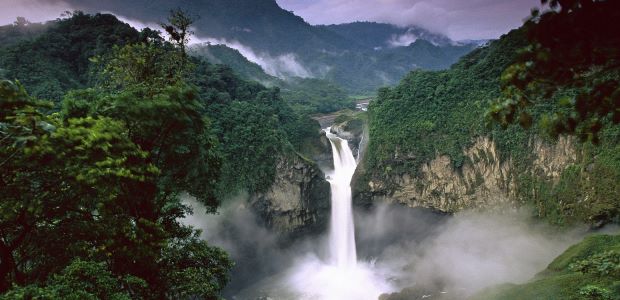
Brazil Repeals Forest Code and Deforestation Accelerates
Will the Brazilian courts uphold constitution protections for future generations as a basis to strike down new forest laws that allow destruction of the world’s climate – protecting forests?
- By Rebecca Purdom, Kelly Nokes
- Jan 08, 2014
In 2014, constitutional challenges to Brazil’s dismantled Forest Code will determine if wholesale destruction of the earth’s largest forest complexes¾and important carbon sinks¾will continue. These rulings may herald a return of Brazil’s environmental policy that for decades attempted to protect the largest tropical forests in the world.
Brazil’s iconic Amazon forest provides an essential natural defense against global warming by capturing world-wide carbon dioxide emissions. Once dubbed the “lungs of the earth” by Vice President and climate change activist Albert Gore, and perpetually under attack by illegal logging and a host of other concerns, Brazil’s forests have benefitted from regulations that recognized the importance of protecting the world’s largest equatorial forest. Instead of strengthening forest protection in light of their critical role in climate change protection, the Brazilian forests came under even graver danger with a 2012 revision of the 1965 Forest Code, which greatly reduced protections in place for over 70 years. Despite Presidential vetoes of the most egregious provisions in the 2012 revisions, the nearly wholesale dismantling of forest and ecosystem protections still stand as current Brazilian law.
The impacts of the revised code are only just becoming clear, as deforestation rates shot up a whopping 28% in the period of August 2012 to July 2013. The revised law provides amnesty for illegal loggers who unlawfully cleared land prior to July 2008. These lawbreakers now only need to recover 50% of the cleared lands, down from the required 80% under the old law. Some small landholders are not required to recover at all. Perhaps most shockingly, these criminals are now exonerated from any outstanding penalties resulting from their unlawful deforestation over the last half decade. In a country still struggling to enforce the rule of law in outlying areas, the last half decade of illegal behavior has just been retroactively forgiven, incentivizing even more illegal logging under the weakened forest code.
The problems with the forest code’s revisions go beyond cutting down trees. The revised code also weakens stream-buffer protections, removes hilltops under 100 meters from protected status, eliminates intermittent stream protections, and decreases safeguards for mangrove forests. It also fosters an environment of deregulation, an atmosphere championed by the country’s powerful agricultural and energy lobbies. In 2013 controversial revisions to the country’s mining laws were introduced, paralleling revisions to the Forest Code. In light of other disturbing actions¾including increased sugarcane ethanol production, the construction of the highly contested Belo Monte dam on the Amazon’s Xingu River, and scheduled deep water oil drilling off the country’s southeast coast¾Brazil’s recent forest code revisions herald dark times for environmental regulation across multiple fronts.
Will these changes to the forest code, and the resulting degradation, be allowed to stand? Brazil’s lead Public Defender¾an independent government advocate charged with protecting the rights of citizens under the Constitution¾recently brought constitutional challenges to 39 provisions of the revised forest code. Those challenges center on the Brazilian government’s constitutional duty to protect an ecologically balanced environment for the benefit of current and future generations. The contest is shaping up as a fight over the future of the Amazon, fought on behalf of those who will have to live in a climate shaped by their loss. The litigation, if successful, could also set precedent for the review of all Brazilian law in light of world-wide climate change impacts.
About the Authors
Professor Rebecca Purdom is known for her work in water and natural resource management, environmental human rights, nonprofit management and policy, and sustainability education. She currently serves as the assistant dean of the Environmental Law Program at Vermont Law School, where she chairs the Distance Learning Program, works with the Center on Agriculture and Food Systems, and teaches in the environmental program.
Kelly Nokes is a staff editor at VJEL. the Chair of the Freshwater Working Group of the VLS Environmental Law Society, and is a Board Fellow with the Friends of the Mad River. Upon graduation, she hopes to return to the West Coast and work with a non-profit organization or public-interest law firm.